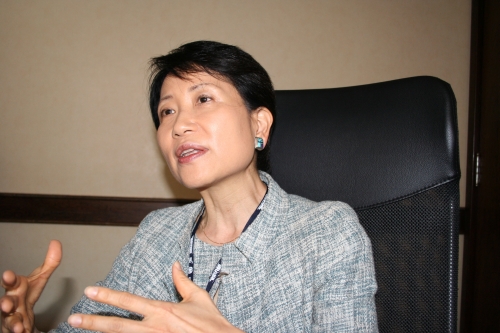Governments are meeting in Paris to reach a new climate change agreement that aims to keep global average temperature rise below 2 degrees Celsius (3.6 degrees Fahrenheit) – the level beyond which there will be irreversible impacts.

The Intergovernmental Panel on Climate Change (IPCC) has made clear that the longer the world delays in tackling climate change, the higher the risks and costs. The next couple of decades are critical.
Halting the growth in global emissions and putting them on a downward path so as to prevent climate disruption is possible, but necessitates a transformation of the global economy that not only addresses climate change, but also powers new growth.
“We are at a defining moment for the future of our planet and its peoples,” said Naoko Ishii, CEO and Chairperson of the Global Environment Facility (GEF). “Urgent action is needed to drastically cut greenhouse gas emissions, invest in adaptation and build resilience to the growing impacts of our rapidly warming world.”
“Shifting to a low-carbon and resilient trajectory will require coordinated, integrated solutions to catalyse transformation of three key economic systems: energy—how we power our homes, offices and industry, and move goods and people from one place to another; cities—how we live; and food production—how and where we produce food, and what we eat,” Ishii continued.
The 21st meeting of the Conference of the Parties (COP21) to the UN Framework Convention on Climate Change (UNFCCC) holds from 30 November to 11 December 2015. It is expected to be a turning point, which sends a loud and clear signal to citizens, markets and the private sector that the transformation of the global economy is inevitable, beneficial, and already underway.
“Based on our quarter century of experience and a wide network of partners, the GEF is well-placed to support this transformation,” said Ishii.
The GEF’s commitment to address climate change issues is unequivocal. In 2013-14, it committed a total $1.4 billion for adaptation and mitigation action. By the end of the current funding cycle in June 2018, it’s estimated that the GEF will be making about $3 billion available to developing countries to help address climate change, with the potential of $25 billion to be leveraged from other sources.
As a financial mechanism of the UNFCCC, the GEF is supporting developing countries’ shift towards a low-emission development path. Besides its ongoing support to countries in their UNFCCC obligations (such as national communications and biennial update reports), the GEF has also provided financial support to 46 countries as they prepared their Intended Nationally Determined Contributions, and stands ready to help make these “investment plans” operational.
In Paris, the GEF will also be actively supporting the 12 action tracks of the so-called Lima Paris Action Agenda to showcase coalitions, partnerships and integrated approaches for action on the ground in areas such as buildings, forests, transport and private finance.
“Rooted in our role as a financing mechanism of the UNFCCC and other key international agreements, the GEF’s resources help catalyse action and direct larger-scale financing flows toward low-carbon and resilient investments,” said Ishii. “We support partnerships at local, national and regional levels around integrated solutions in areas like energy efficiency, renewable energy, sustainable cities, land degradation, deforestation, food security and resilience.”
Governments, the private sector and civil society are taking action on climate change because it is in their interest to do so. Ahead of Paris, almost all countries, as well as states, cities, business and investors, have come forward with the most comprehensive set of pledges and plans ever seen to reduce emissions and bolster resilience.
Paris is a huge opportunity to demonstrate political ambition and action on climate change. But, what happens after is as, if not more, important.
The newly adopted Sustainable Development Goals recognise that the health of the global commons is essential for a thriving world,” said Ishii. “A strong climate agreement backed by action on the ground will help us achieve the SDGs. But with the underlying drivers of degradation still at play, our efforts must only intensify.”
